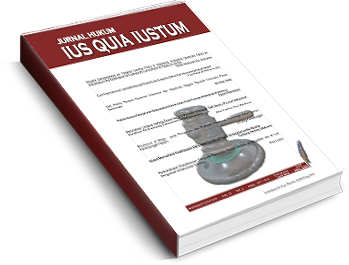Main Article Content
Abstract
Can international law be enforced? This begs a question, thus problem, in the theory of law: whether there can be enforcement of law in absence of sovereign authority, as is the case of International law. International law has become its own legal order with its own unique way of operating. This writing is a normative research on the sources and reality of the actors of international law. It is found that international law is enforceable and that there are two ways that international law can be enforced, i.e. enforcement by “authorities” formed by treaty regimes, and by non-authorities (including enforcement individual states and by the international community). It is also found that these enforcement means have their weaknesses.
Keywords
Article Details
Authors who publish with this journal agree to the following terms:
a. Authors retain copyright and grant the journal right of first publication with the work simultaneously licensed under a Creative Commons Attribution License that allows others to share the work with an acknowledgement of the work's authorship and initial publication in this journal.
b. Authors are able to enter into separate, additional contractual arrangements for the non-exclusive distribution of the journal's published version of the work (e.g., post it to an institutional repository or publish it in a book), with an acknowledgement of its initial publication in this journal.




